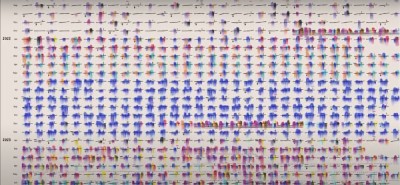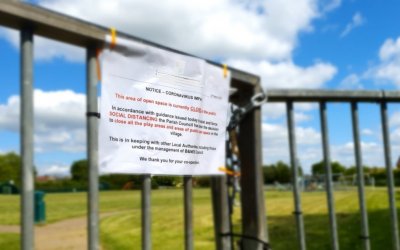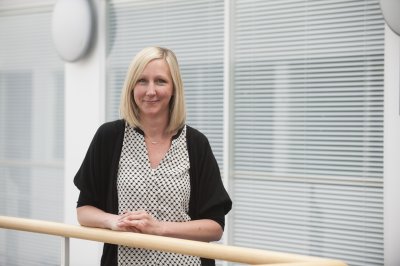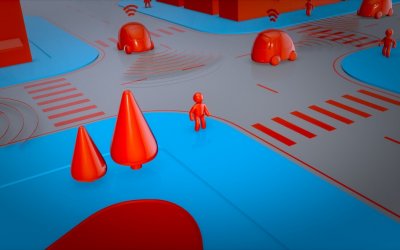
Covid-19 inequalities research
Tracking Long Covid: a study of patients’ engagement with self-tracking technologies

Long Covid is a multisystemic illness resulting from infection with the SARS-CoV-2 virus. This project examines how people living with Long Covid engage with self-tracking technologies to gain insight into or manage their symptoms. The project explores three interrelated research questions: (1) In what ways and for what purposes do people living with Long Covid use self-tracking technologies in relation to their illness?; (2) What impact has the use of self-tracking technologies had on people’s understandings of their illness and themselves?; (3) What, if any, possibilities for counterpower and data activism do self-tracking technologies present, and how?
Dr Sazana Jayadeva is conducting this research in collaboration with Prof. Deborah Lupton (UNSW Sydney, Australia).
Image created by Giorgia Lupi.
Disproportionate impacts on Covid-19 on pregnancy and maternity

Dr Ranjana Das (pictured) is studying how Covid-19 is disproportionately impacting pregnancy and maternity by looking at women’s experiences of perinatal mental health difficulties, giving birth and being postnatal amidst the pandemic. She is paying particular attention to the rapid pivot towards digital delivery, investigating both the promises and potentials as well as the inequalities, uncertainties and pitfalls of this digital pivot. Her early findings were delivered to the Institute of Health Visiting in May 2020. A report in forthcoming in early summer 2020.
Watch Dr Das's presentation to the Institute of Health Visiting
Connecting with nature during times of crisis: Understanding alternative use of spaces of leisure and recreation during lockdown

Professor Caroline Scarles and Dr Tracy Xu are working in collaboration with Dr Birgitta Gatersleben and Dr Kayleigh Wyles from the School of Psychology to investigate the impact of COVID-19 on people’s use of local, everyday spaces of leisure and recreation. The research seeks to understand how behaviour during lockdown is significantly different to pre-lockdown behaviours and how experiences during lockdown may influence changes in behaviour going forward. This is an ongoing survey and results will be shared in due course.
UK-wide research will look at impact of Covid-19 on early cancer diagnosis

Dr Katriina Whitaker (pictured) is working with the University of Cardiff, King’s College London and Cancer Research UK to understand the impact of Covid-19 on cancer attitudes and behaviours. The message to “stay home, protect the NHS, save lives” and the suspension of cancer screening programmes sent a strong message that “cancer can wait”. This UKRI funded project will help develop clear public health messages to encourage early detection and prevention.
Sustainable mobility and Autonomous Vehicles after Covid-19

SHTM/SWELL have been administering in the UK a user survey focusing on travel preferences and Autonomous Vehicles. This is an activity of WISE-ACT, which is an international network of experts chaired by Dr Nikolas Thomopoulos. Since this user survey is co-ordinated with the Eurobarometer and administered in several countries across Europe, SHTM/SWELL researchers will collaborate with WISE-ACT to control user responses received before and after the COVID-19 lock-down across participating countries. Findings will be published in this upcoming Special Issue.
Studying risk perceptions associated with Covid-19 in different European and South American countries

Dr Birgitta Gatersleben (pictured) is working with Dr Fátima Bernardo from the Universidade de Évora in Portugal to study risk perceptions associated with Covid-19 in different European (UK, Spain, Portugal, Germany) and South American countries (Brazil, Chile). The study examines whether risk perceptions differ between countries, change over time (due to Government responses) and are related to place attachment. Preliminary findings point to some expected differences, however, in general this global pandemic appears to affect perceptions across the world in similar ways.
Doctoral researcher pauses PhD to return to clinical practice

Duncan Hamilton (pictured), a newly-registered nurse, has continued working in clinical practice on a local respiratory ward. Duncan has co-authored an article in Nursing Standard about ethical practice during the pandemic and acknowledged in an editorial on staff wellbeing in the Journal of Clinical Nursing. Duncan is supervised by Professor Jill Maben and Dr Cath Taylor in the School of Health Sciences.